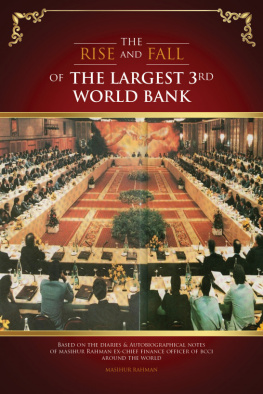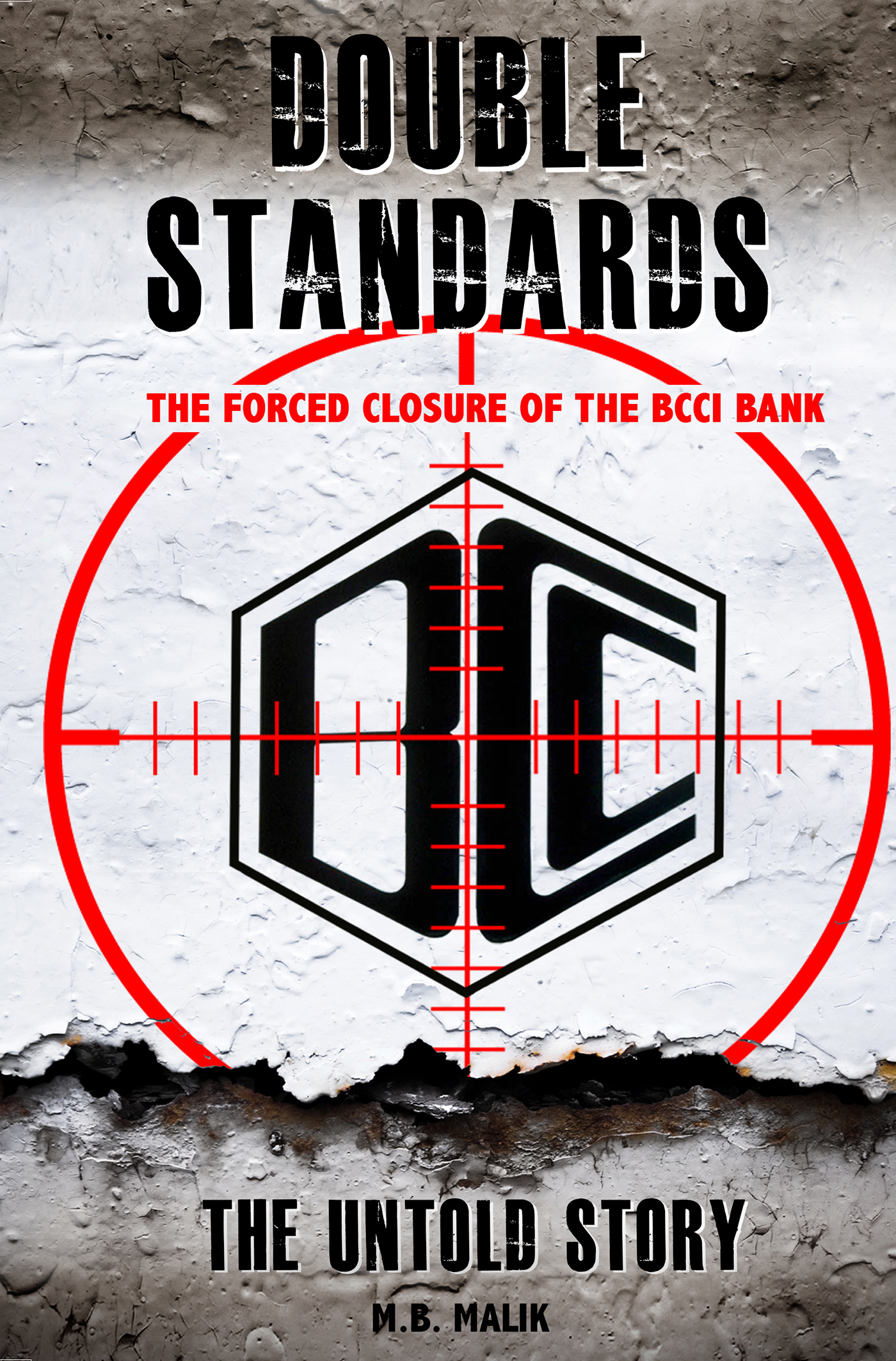Copyright 2022 M.B. Malik
The moral right of the author has been asserted.
Apart from any fair dealing for the purposes of research or private study, or criticism or review, as permitted under the Copyright, Designs and Patents Act 1988, this publication may only be reproduced, stored or transmitted, in any form or by any means, with the prior permission in writing of the publishers, or in the case of reprographic reproduction in accordance with the terms of licences issued by the Copyright Licensing Agency. Enquiries concerning reproduction outside those terms should be sent to the publishers.
This is a work of fiction. Names, characters, businesses, places, events and incidents are either the products of the authors imagination or used in a fictitious manner. Any resemblance to actual persons, living or dead, or actual events is purely coincidental.
Matador
Unit E2 Airfield Business Park,
Harrison Road, Market Harborough,
Leicestershire. LE16 7UL
Tel: 0116 2792299
Email:
Web: www.troubador.co.uk/matador
Twitter: @matadorbooks
ISBN 9781785895203
British Library Cataloguing in Publication Data.
A catalogue record for this book is available from the British Library.
Matador is an imprint of Troubador Publishing Ltd
Dedicated to my beloved late father, who taught me everything I know. Papa, you are missed daily - it is all for you. For my mother, to whom I owe everything., and my motivation my niece Ilyana.
Contents
Preface
February 9 th 1988
State dinner at President House Lahore, Pakistan
Few would reminisce a more high-powered dinner table than Pakistani President General Muhammad Zia-ul-Haq and the Ruler of UAE HH Sheikh Zayed Al Nahyan. The important men were busy devouring the main course of traditional Lahori mutton kebab tikkas, fish and biryani, while the Presidents staff were on standby to refill any plate that looked as though it was nearing depletion.
Just as dessert was about to be served, one of Sheikh Zayeds aides whispered into his ear at which point he promptly wiped his mouth with the embroidered silk table napkin, abruptly stood up and made his way towards the exit of the state dining hall.
At this point the entire table, including General Zia-ul-Haq stood up and were in shock as to what grave insult or culinary crime had been committed that could have offended His Royal Highness. Less than a minute later, the Presidents personal advisor whispered into his ear, which caused him to immediately excuse himself from the table and he also made his way out of the dining hall.
Suddenly the pin-drop silence turned into a hurried frenzy as the presidents protocol officers gathered their personnel to escort the high-powered leaders and their entourages to their destination which was unknown to the rest of the table until the leaders had left.
Rumours were beginning to spread but security officers kept everything very hush. The destination: Sheikh Zayed Hospital Lahore.
The whisper into Sheikh Zayeds ear Your Highness, Mr. Abedi has suffered a severe heart attack and is in critical condition
Who was the man who caused the State dinner to end and led the worlds most powerful men to be by his hospital bedside within a matter of minutes?
His name was Agha Hasan Abedi, the President of one of the largest banks in the world.
Humble beginnings
Pakistan is indeed a funny place. For it nurtures an uncanny knack for disgracing its fallen heroes and shaming them constantly. Its almost as bad as my mothers obsession with me, being the only son, although without the nostalgic claustrophobia attached.
Now being a British-born Londoner with parents of Pakistani descent, I somewhat found myself warming to this troubled nation of 180 million people. As a kid growing up, I would be supporting the green shirts in almost all the Cricket matches where England were not the opposition. The litmus test of my Britishness was however in the summer of 1992 when Graham Goochs boys were up against Imran Khans cornered tigers at the World Cup Cricket Final in Melbourne. My loyalties came under immense scrutiny by my fellow nine-year-old school buddies at St. Martins Prep School in Northwood, a quiet green and leafy suburb in North West London. As the great Khan lifted up the cup, a nine-year-old me was jubilating up and down the corridors of Prep School with my milk and biscuits (pre-Thatcherite babies will understand) dribbling all over the place.
It is at this time I began questioning my own self, regarding identity and belonging in a nation where I had never lived and the only ties I had were my parents and the language we spoke at home. Then at the tender age of thirteen I was sent off to a place to be further confused in this identity crisis: A quintessentially-English boarding school in a predominantly Jewish inhabited area of North London. At first, I used to burst out in Oscar-winning tears most nights on the phone, blackmailing my poor old parents, branding them cruel for the crime of sending me to prison as I would term it. My emotionally-wrecked mother then having to send me home-cooked meals on almost a daily basis, circumventing the strict rules of parents visiting on Sundays only. Unfortunately, we were the only school in the vicinity to have conscripted Saturday school which constituted morning chapel service followed by afternoon sporting activities. The rationale that our Headmaster gave was that there isnt enough time in the conventional week to fulfill our full academic and extra-curricular programme. Bollocks was my initial reaction. We are all going to become Prime Ministers and leaders of our generation said Simon Ratzker, a fellow housemate who was celebrated to become our future Olympic hero.
I later realized that our headmaster at the time was quite correct. As I look back and seeing the world I live in today, the boarding-school days were probably the best days of my life. I didnt quite fit in at the beginning while sharing a dormitory with twelve other bright-eyed thirteen year olds. I was a typical and indicative Mummys boy as it were, who was too shy to speak to girls (this changed very rapidly as girls were introduced to the school in the sixth form). To add to my socially-reclusive demeanor, I despised alcohol ferociously. So much so that the slightest smell of alcohol seemed repugnant to me, which is why I found it difficult to socialise at parties after rugby and cricket matches that we played in. I remember distinctly when I got selected to play for the First XI cricket tour to Barbados in 1996. I was merely thirteen and was playing with the senior squad in the West Indies, which to me was an enormous boost to my self-confidence as well as a real shot at the Under nineteen Middlesex County selections later on. On the very same trip, one evening we were all out in Bridgetown, Barbadoss capital, and the boys put all their efforts in trying to make me drink, going as far as tipping the most beautiful waitresses to send me drinks for free. But all their attempts failed which is when I knew that the years ahead would be quite tough indeed.
However at the time I didnt know that those same people with whom I shared an incommodious space with in bunk beds, would grow on to become the closest and most cherished friends I possess. Even later in life, I learnt the paradigmatic saying its the quality of friends, not quantity that counts to be very true.




